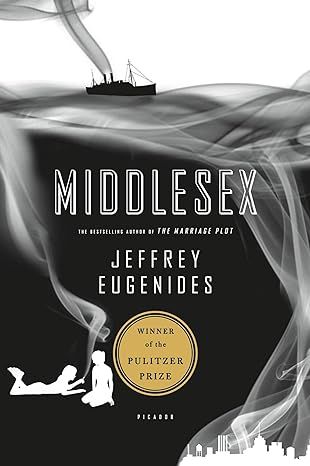Middlesex: A Novel (Oprah's Book Club)
4.4
-
12,000 ratings
Middlesex is the winner of the 2003 Pulitzer Prize for Fiction.
A dazzling triumph from the bestselling author of The Virgin Suicides--the astonishing tale of a gene that passes down through three generations of a Greek-American family and flowers in the body of a teenage girl.
"I was born twice: first, as a baby girl, on a remarkably smogless Detroit day of January 1960; and then again, as a teenage boy, in an emergency room near Petoskey, Michigan, in August of l974. . . My birth certificate lists my name as Calliope Helen Stephanides. My most recent driver's license...records my first name simply as Cal."
So begins the breathtaking story of Calliope Stephanides and three generations of the Greek-American Stephanides family who travel from a tiny village overlooking Mount Olympus in Asia Minor to Prohibition-era Detroit, witnessing its glory days as the Motor City, and the race riots of l967, before they move out to the tree-lined streets of suburban Grosse Pointe, Michigan. To understand why Calliope is not like other girls, she has to uncover a guilty family secret and the astonishing genetic history that turns Callie into Cal, one of the most audacious and wondrous narrators in contemporary fiction. Lyrical and thrilling, Jeffrey Eugenides's Middlesex is an exhilarating reinvention of the American epic.
Kindle
$0.00
Available instantly
Audiobook
$0.00
with membership trial
Hardcover
$17.94
Paperback
$11.25
Ships from
Amazon.com
Payment
Secure transaction
ISBN-10
0274885417
ISBN-13
978-0312427733
Print length
544 pages
Language
English
Publisher
Picador
Publication date
June 04, 2002
Dimensions
5.5 x 1 x 8.2 inches
Item weight
15.2 ounces
Popular Highlights in this book
Everyone struggles against despair, but it always wins in the end. It has to. It’s the thing that lets us say goodbye.
Highlighted by 1,339 Kindle readers
There is no evidence against genetic determinism more persuasive than the children of the rich.
Highlighted by 1,297 Kindle readers
So do boys and men announce their intentions. They cover you like a sarcophagus lid. And call it love.
Highlighted by 841 Kindle readers
Product details
ASIN :
0312427735
File size :
1086 KB
Text-to-speech :
Enabled
Screen reader :
Supported
Enhanced typesetting :
Enabled
X-Ray :
Not Enabled
Word wise :
Enabled
Award Winners:
Editorial Reviews
"I was born twice: first, as a baby girl, on a remarkably smogless Detroit day in January of 1960; and then again, as a teenage boy, in an emergency room near Petoskey, Michigan, in August of 1974." And so begins Middlesex, the mesmerizing saga of a near-mythic Greek American family and the "roller-coaster ride of a single gene through time." The odd but utterly believable story of Cal Stephanides, and how this 41-year-old hermaphrodite was raised as Calliope, is at the tender heart of this long-awaited second novel from Jeffrey Eugenides, whose elegant and haunting 1993 debut, The Virgin Suicides, remains one of the finest first novels of recent memory.
Eugenides weaves together a kaleidoscopic narrative spanning 80 years of a stained family history, from a fateful incestuous union in a small town in early 1920s Asia Minor to Prohibition-era Detroit; from the early days of Ford Motors to the heated 1967 race riots; from the tony suburbs of Grosse Pointe and a confusing, aching adolescent love story to modern-day Berlin. Eugenides's command of the narrative is astonishing. He balances Cal/Callie's shifting voices convincingly, spinning this strange and often unsettling story with intelligence, insight, and generous amounts of humor:
Emotions, in my experience aren't covered by single words. I don't believe in "sadness," "joy," or "regret." I'd like to have at my disposal complicated hybrid emotions, Germanic traincar constructions like, say, "the happiness that attends disaster." Or: "the disappointment of sleeping with one's fantasy." ... I'd like to have a word for "the sadness inspired by failing restaurants" as well as for "the excitement of getting a room with a minibar." I've never had the right words to describe my life, and now that I've entered my story, I need them more than ever.
When you get to the end of this splendorous book, when you suddenly realize that after hundreds of pages you have only a few more left to turn over, you'll experience a quick pang of regret knowing that your time with Cal is coming to a close, and you may even resist finishing it--putting it aside for an hour or two, or maybe overnight--just so that this wondrous, magical novel might never end. --Brad Thomas Parsons
Sample
Chapter One
THE SILVER SPOON
I was born twice: first, as a baby girl, on a remarkably smogless Detroitday in January of 1960; and then again, as a teenage boy, inan emergency room near Petoskey, Michigan, in August of 1974.Specialized readers may have come across me in Dr. Peter Luce'sstudy, "Gender Identity in 5-Alpha-Reductase Pseudohermaphrodites,"published in the Journal of Pediatric Endocrinology in 1975. Ormaybe you've seen my photograph in chapter sixteen of the nowsadly outdated Genetics and Heredity. That's me on page 578, standingnaked beside a height chart with a black box covering my eyes.
My birth certificate lists my name as Calliope Helen Stephanides.My most recent driver's license (from the Federal Republic of Germany)records my first name simply as Cal. I'm a former field hockeygoalie, long-standing member of the Save-the-Manatee Foundation,rare attendant at the Greek Orthodox mass, and, for most of myadult life, an employee of the U.S. State Department. Like Tiresias, Iwas first one thing and then the other. I've been ridiculed by classmates,guinea-pigged by doctors, palpated by specialists, and researchedby the March of Dimes. A redheaded girl from GrossePointe fell in love with me, not knowing what I was. (Her brotherliked me, too.) An army tank led me into urban battle once; a swimmingpool turned me into myth; I've left my body in order to occupyothers-and all this happened before I turned sixteen.
But now, at the age of forty-one, I feel another birth coming on.After decades of neglect, I find myself thinking about departed great-auntsand -uncles, long-lost grandfathers, unknown fifth cousins, or,in the case of an inbred family like mine, all those things in one. Andso before it's too late I want to get it down for good: this roller-coasterride of a single gene through time. Sing now, O Muse, of therecessive mutation on my fifth chromosome! Sing how it bloomedtwo and a half centuries ago on the slopes of Mount Olympus, whilethe goats bleated and the olives dropped. Sing how it passed downthrough nine generations, gathering invisibly within the pollutedpool of the Stephanides family. And sing how Providence, in theguise of a massacre, sent the gene flying again; how it blew like a seedacross the sea to America, where it drifted through our industrialrains until it fell to earth in the fertile soil of my mother's own mid-westernwomb.
Sorry if I get a little Homeric at times. That's genetic, too.
Three months before I was born, in the aftermath of one of our elaborateSunday dinners, my grandmother Desdemona Stephanides orderedmy brother to get her silkworm box. Chapter Eleven had beenheading toward the kitchen for a second helping of rice puddingwhen she blocked his way. At fifty-seven, with her short, squat figureand intimidating hairnet, my grandmother was perfectly designed forblocking people's paths. Behind her in the kitchen, the day's large femalecontingent had congregated, laughing and whispering. Intrigued,Chapter Eleven leaned sideways to see what was going on,but Desdemona reached out and firmly, hegemonically even, pinchedhis cheek. Having regained his attention, she sketched a rectangle inthe air and pointed at the ceiling. Then, through her ill-fitting dentures,she said, "Go for yia yia, dolly mou."
Chapter Eleven knew what to do. He ran across the hall into theliving room. On all fours he scrambled up the formal staircase to thesecond floor. He raced past the bedrooms along the upstairs corridor.At the far end was a nearly invisible door, wallpapered over like theentrance to a secret passageway. Chapter Eleven located the tinydoorknob level with his head and, using all his strength, pulled itopen. Another set of stairs lay behind it. For a long moment mybrother stared hesitantly into the darkness above, before climbing,very slowly now, up to the attic where my grandparents lived.
In sneakers he passed beneath the twelve, damply newspaperedbirdcages suspended from the rafters. With a brave face he immersedhimself in the sour odor of the parakeets, and in my grandparents'own particular aroma, a mixture of mothballs and hashish. He negotiatedhis way past my grandfather's book-piled desk and his collectionof rebetika records. Finally, bumping into the leather ottomanand the circular coffee table made of brass, he found my grandparents'bed and, under it, the silkworm box.
Carved from olivewood, a little bigger than a shoe box, it had atin lid perforated by tiny airholes and inset with the icon of an unrecognizablesaint. The saint's face had been rubbed off, but the fingersof his right hand were raised to bless a short, purple, terrifically self-confident-lookingmulberry tree. After gazing awhile at this vividbotanical presence, Chapter Eleven pulled the box from under thebed and opened it. Inside were the two wedding crowns made fromrope and, coiled like snakes, the two long braids of hair, each tiedwith a crumbling black ribbon. He poked one of the braids with hisindex finger. Just then a parakeet squawked, making my brotherjump, and he closed the box, tucked it under his arm, and carried itdownstairs to Desdemona.
She was still waiting in the doorway. Taking the silkworm box outof his hands, she turned back into the kitchen. At this point ChapterEleven was granted a view of the room, where all the women nowfell silent. They moved aside to let Desdemona pass and there, in themiddle of the linoleum, was my mother. Tessie Stephanides was leaningback in a kitchen chair, pinned beneath the immense, drum-tightglobe of her pregnant belly. She had a happy, helpless expression onher face, which was flushed and hot. Desdemona set the silkwormbox on the kitchen table and opened the lid. She reached under thewedding crowns and the hair braids to come up with somethingChapter Eleven hadn't seen: a silver spoon. She tied a piece of stringto the spoon's handle. Then, stooping forward, she dangled thespoon over my mother's swollen belly. And, by extension, over me.
Up until now Desdemona had had a perfect record: twenty-threecorrect guesses. She'd known that Tessie was going to be Tessie.She'd predicted the sex of my brother and my four classically namedcousins, Socrates, Plato, Aristotle, and Cleopatra. The only childrenwhose genders she hadn't divined were her own, because it was badluck for a mother to plumb the mysteries of her own womb. Fearlessly,however, she plumbed my mother's. After some initial hesitation,the spoon swung north to south, which meant that I was goingto be a boy.
Splay-legged in the chair, my mother tried to smile. She didn'twant a boy. She had one already. In fact, she was so certain I was goingto be a girl that she'd picked out only one name for me: Calliope.But when my grandmother shouted in Greek, "A boy!" the cry wentaround the room, and out into the hall, and across the hall into theliving room where the men were arguing politics. And my mother,hearing it repeated so many times, began to believe it might be true.
As soon as the cry reached my father, however, he marched intothe kitchen to tell his mother that, this time at least, her spoon waswrong. "And how you know so much?" Desdemona asked him. Towhich he replied what many Americans of his generation wouldhave:
"It's science, Ma."
Ever since they had decided to have another child-the diner was doingwell and Chapter Eleven was long out of diapers-Milton andTessie had been in agreement that they wanted a daughter. ChapterEleven had just turned five years old. He'd recently found a dead birdin the yard, bringing it into the house to show his mother. He likedshooting things, hammering things, smashing things, and wrestlingwith his father. In such a masculine household, Tessie had begun tofeel like the odd woman out and saw herself in ten years' time imprisonedin a world of hubcaps and hernias. My mother pictured adaughter as a counterinsurgent: a fellow lover of lapdogs, a seconderof proposals to attend the Ice Capades. In the spring of 1959, whendiscussions of my fertilization got under way, my mother couldn'tenvision that women would soon be burning their brassieres by thethousand. Hers were padded, stiff, fire-retardant. As much as Tessieloved her son, she knew there were certain things she'd be able toshare only with a daughter.
On his morning drive to work, my father had been seeing visionsof a irresistibly sweet, dark-eyed little girl. She sat on the seat besidehim-mostly during stoplights-directing questions at his patient,all-knowing ear. "What do you call that thing, Daddy?" "That? That'sthe Cadillac seal." "What's the Cadillac seal?" "Well, a long time ago,there was a French explorer named Cadillac, and he was the one whodiscovered Detroit. And that seal was his family seal, from France.""What's France?" "France is a country in Europe." "What's Europe?""It's a continent, which is like a great big piece of land, way, way biggerthan a country. But Cadillacs don't come from Europe anymore,kukla. They come from right here in the good old U.S.A." The lightturned green and he drove on. But my prototype lingered. She wasthere at the next light and the next. So pleasant was her company thatmy father, a man loaded with initiative, decided to see what he coulddo to turn his vision into reality.
Thus: for some time now, in the living room where the men discussedpolitics, they had also been discussing the velocity of sperm.Peter Tatakis, "Uncle Pete," as we called him, was a leading memberof the debating society that formed every week on our black loveseats. A lifelong bachelor, he had no family in America and so had becomeattached to ours. Every Sunday he arrived in his wine-darkBuick, a tall, prune-faced, sad-seeming man with an incongruouslyvital head of wavy hair. He was not interested in children. A proponentof the Great Books series-which he had read twice-UnclePete was engaged with serious thought and Italian opera. He had apassion, in history, for Edward Gibbon, and, in literature, for thejournals of Madame de Stakl. He liked to quote that witty lady'sopinion on the German language, which held that German wasn'tgood for conversation because you had to wait to the end of the sentencefor the verb, and so couldn't interrupt. Uncle Pete had wantedto become a doctor, but the "catastrophe" had ended that dream. Inthe United States, he'd put himself through two years of chiropracticschool, and now ran a small office in Birmingham with a humanskeleton he was still paying for in installments. In those days, chiropractorshad a somewhat dubious reputation. People didn't come toUncle Pete to free up their kundalini. He cracked necks, straightenedspines, and made custom arch supports out of foam rubber. Still, hewas the closest thing to a doctor we had in the house on those Sundayafternoons. As a young man he'd had half his stomach surgicallyremoved, and now after dinner always drank a Pepsi-Cola to help digesthis meal. The soft drink had been named for the digestive enzymepepsin, he sagely told us, and so was suited to the task.
It was this kind of knowledge that led my father to trust what UnclePete said when it came to the reproductive timetable. His head ona throw pillow, his shoes off, Madama Butterfly softly playing on myparents' stereo, Uncle Pete explained that, under the microscope,sperm carrying male chromosomes had been observed to swim fasterthan those carrying female chromosomes. This assertion generatedimmediate merriment among the restaurant owners and fur finishersassembled in our living room. My father, however, adopted the poseof his favorite piece of sculpture, The Thinker, a miniature of whichsat across the room on the telephone table. Though the topic hadbeen brought up in the open-forum atmosphere of those postprandialSundays, it was clear that, notwithstanding the impersonal toneof the discussion, the sperm they were talking about was my father's.Uncle Pete made it clear: to have a girl baby, a couple should "havesexual congress twenty-four hours prior to ovulation." That way, theswift male sperm would rush in and die off. The female sperm, sluggishbut more reliable, would arrive just as the egg dropped.
My father had trouble persuading my mother to go along with thescheme. Tessie Zizmo had been a virgin when she married MiltonStephanides at the age of twenty-two. Their engagement, which coincidedwith the Second World War, had been a chaste affair. Mymother was proud of the way she'd managed to simultaneously kindleand snuff my father's flame, keeping him at a low burn for the durationof a global cataclysm. This hadn't been all that difficult,however, since she was in Detroit and Milton was in Annapolis at theU.S. Naval Academy. For more than a year Tessie lit candles at theGreek church for her fianci, while Milton gazed at her photographspinned over his bunk. He liked to pose Tessie in the manner of themovie magazines, standing sideways, one high heel raised on a step,an expanse of black stocking visible. My mother looks surprisinglypliable in those old snapshots, as though she liked nothing betterthan to have her man in uniform arrange her against the porches andlampposts of their humble neighborhood.
She didn't surrender until after Japan had. Then, from their weddingnight onward (according to what my brother told my coveredears), my parents made love regularly and enjoyably. When it came tohaving children, however, my mother had her own ideas. It was herbelief that an embryo could sense the amount of love with which ithad been created. For this reason, my father's suggestion didn't sitwell with her.
"What do you think this is, Milt, the Olympics?"
"We were just speaking theoretically," said my father.
"What does Uncle Pete know about having babies?"
"He read this particular article in Scientific American," Milton said.And to bolster his case: "He's a subscriber."
"Listen, if my back went out, I'd go to Uncle Pete. If I had flatfeet like you do, I'd go. But that's it."
"This has all been verified. Under the microscope. The malesperms are faster."
"I bet they're stupider, too."
"Go on. Malign the male sperms all you want. Feel free. We don'twant a male sperm. What we want is a good old, slow, reliable femalesperm."
"Even if it's true, it's still ridiculous. I can't just do it like clockwork,Milt."
"It'll be harder on me than you."
"I don't want to hear it."
"I thought you wanted a daughter."
"I do."
"Well," said my father, "this is how we can get one."
Tessie laughed the suggestion off. But behind her sarcasm was aserious moral reservation.
Read more
About the authors
Jeffrey Eugenides
Jeffrey Eugenides -- winner of the 2003 Pulitzer Prize for Fiction for Middlesex -- was born in Detroit, Michigan in 1960. His first novel, The Virgin Suicides, was published in 1993, and has since been translated into fifteen languages and made into a major motion picture. His second novel, Middlesex, was an international bestseller. Jeffrey Eugenides is the recipient of many awards, including the Pulitzer Prize, fellowships from the Guggenheim Foundation and The National Foundation for the Arts, a Whiting Writers' Award, and the Harold D. Vursell Award from The American Academy of Arts and Letters. He has been a Fellow of the Berliner Künstlerprogramm of the DAAD and of the American Academy in Berlin. Jeffrey Eugenides lives in Berlin.
Read more
Reviews
Customer reviews
4.4 out of 5
12,000 global ratings
Viola Chen
5
Engaging, convincing, and well-crafted
Reviewed in the United States on April 4, 2012
Verified Purchase
I plunged into Middlesex the way I prefer to do all of my fiction reading - without knowing anything about the book - and I am so very grateful to have done that particularly with this one. If you are reading this review, then either (i) you have already read the book and are curious for other's opinions or (ii) you are clearly not like me, otherwise you wouldn't be reading this review. If you haven't read the book and your mind isn't already tainted with pre-conceived notions about it, I suggest you stop reading this review and simply pick up the book. It is excellent, and that's all you need to know.
Okay, then, that's my warning. The rest of this review will reveal some bare bones facts on what this book is about, and don't say that I didn't warn you against forming pre-conceived notions.
In brilliant and engaging prose, Eugenides tells us a story that spans three generations of the Stephanides family through the omniscient eyes of its youngest member. The fact that the story spans three generations suggests that it would be an epic novel, but to me it's not epic. It feels intimate and warm, not grand. And, although we do learn about the narrator's grandparents and parents, the story is ultimately about the narrator, who is a hermaphrodite. Some reviewers have commented on how the book seems divided into two stories - the family saga and the hermaphrodite. Sadly, I think that interpretation misses the point of this novel. It's one story, because you are your parents' child just as you are your grandparents' grandchild.
I found the novel so convincing that I started to wonder if Eugenides himself was a hermaphrodite and if this book was a dramatized autobiography. No, he is not and this book is not, but that is how realistic it feels. Eugenides succeeds because he doesn't make us pity the poor creature nor does he create a freak show. Instead, he makes the narrator incredibly and unbelievably human.
Not only is the story itself compelling, but the words conveying that story are well-crafted. Eugenides is an adept storyteller. His words flow like water. The narration is completely engrossing and easy to read. Now, I don't mean easy to read as in the writing is simplistic or elementary. I just mean that it doesn't feel like you are reading a heavy piece of literature. It doesn't tax your brain. The words just flow, and I absolutely love that.
One last point. In this book, Eugenides perfects an often neglected aspect of storytelling and that is the story arc. Most authors get away with ignoring the arc. It's not necessary for a bestseller, nor is it necessary in the way beautiful prose is for literary acclaim. But, in this novel, the story arc is textbook perfect. The beginning establishes a solid foundation. The middle maintains a steady pace and then crescendos beautifully until it climaxes fairly close to the end. At last, the conclusion releases all of the built up tension, ultimately leaving the reader feeling completely satisfied.
Completely satisfied.
Read more
9 people found this helpful
Ariel D.
5
Beautifully written
Reviewed in the United States on April 4, 2024
Verified Purchase
Worth it for the beautiful writing, and love the character development and historical layering. Very moving story
2 people found this helpful
David Adelman
5
A "small" epic, Beautifully written...
Reviewed in the United States on January 12, 2013
Verified Purchase
Middlesex was my first exposure to the author. I say that as preface to establish that I was a blank slate at the time I read the work. Discovering Mr. Eugenides for me has been the most pleasant experience. This book, as anyone can discern for themselves by reading a synopsis - concerns itself with Calliope who becomes Cal, and more importantly the story of his (or her) family. The clumsiness of my ability to assign gender aside, which may or may not be be politic, this book is emphatically not about gender. Oh, that is not to say that the book does not touch upon the subject. My point is that the intersex subject matter is not the crux of the story, but rather of symbolic importance, a way to access the family history. At one point in the narrative, early on, the narrator even says that this is a genetic history, the story of a single gene through the generations.
Thus we come to my titular description of a "small" epic. Although that is unfair. It would be more accurate to say that it is close, because it deals with one family, and yet that would be just as inaccurate in its own way. I would say instead that nearly every character, and certainly the family. is imbued with characteristics that deepen them; in effect, make them more real. There are exceptions of course; it is not a perfect work, but any imperfections for me were worth it for the actual experience that is the good in this book. Portions of this book, particularly the insight the author gives into our protagonist, is pure poetry. This will always be a major plus for me. Of course I was not expecting the same kind of treatment to extend to a geography, Detroit, but I could certainly handle it. Normally, I don't respond nearly so well to an author who takes on a space as muse, especially in this kind of narrative that has a depth-ness of both time and space, but again, for me it didn't detract. At worst, the long soliloquies about Detroit only slowed down the narrative. Of course as a reader, it is slightly irritating that ostensibly for the amount of time that is spent on it, the zeitgeist of Detroit is a character itself. However, I don't know how much of this is the novel itself, or simply the limitations of the genre. Any work that concerns itself heavily with the passage of history, has to deal with that history. For all of the beauty of the words then, this book is pragmatic in that sense.
But, to reiterate. When this book is good, it's good. Like candy or cake melting on the tongue. We get to see the characters as the ultimate snapshots of humanity - in highs and lows and everything in-between. Most impressively, for all that this book clothes itself in allusions towards mythology and tragedy, all of this is done without pretension.
Read more
4 people found this helpful

Jenn
4
Glad I read it, wouldn't read it again or tell others the NEED to
Reviewed in the United States on April 3, 2015
Verified Purchase
I know this is a well loved book and has won Pulizter Prize but I was left with a feeling of wanting and basically a bit let down. I expected to read a book with a main focus on Callie and being born a hermaphrodite with supporting histories spanning the 8 decades the synopsis speaks of. However, what I got was something that felt much more like two separate books.
The first 50% of the book is background story of Callie/Cal’s heritage. Who he came from, where he came from why he came to be before he ever came to be. Some of the details seemed unimportant to that aspect unless in fact the main point of the story was the history of this family. So I diligently read the first 50% with Cal interjecting from time to time and narrating in an omnipresent way that rather baffled me. Still I wonder how he supposedly knew all he did. For me it would have been much better narrated by an unknown all seeing person that would allow me to explain away how I was be informed about stuff that Cal would have never known.
After 50% we start getting into more of Cal’s childhood, his life and being him. But unlike the first part of the book where he seems to know everything, talking about himself instead seems rather difficult. It is as if he is not comfortable describing his life and giving much details and this felt rather frustrating. Even if it is a device or perhaps a way to emphasize how he feels about himself it was rather annoying after the time I spent getting to know his family when what i wanted was the exploration and insite into Cal.
It was not until 80% when I finally got what I was looking for when I started this journey of a novel. For me this is what I thought the focus would be and it is where I finally became engrossed again in the story. Truth is between 60 & 80% of the book I contemplated putting it down and walking away I was so frustrated. I am glad I stuck it out but still it was not enough of an ending to make up for the blah of the middle. For me it felt like two separate books and I would have happily read the book on the family history as a separate story all together and then one on Cal/Callie if only the depth of exploration in to Cal’s life was further explored.
A very informative read that I found enlightening in many ways and am glad I read but not sure I will ever explore it again.
Read more
15 people found this helpful
Ryan D
3
Filet Mignon or a Hercules Hot Dog?
Reviewed in the United States on November 8, 2022
Verified Purchase
So I've now read this and Virgin Suicides. I'm noting a pattern with Eugenides. First of all, he's a very witty, verbally gifted writer. But there is this weird distance with which he approaches his subject matters. In The Virgin Suicides you think you might get a portrait of what is going on in the minds of these teenaged girls, but you don't. In fact the whole point is their inner thoughts and emotions are inaccessible and the narrator (or narrators) is mostly grasping at straws, focusing on external details hoping they will provide the clue, unlock the key to the mystery of who these girls are. But the mystery is never fully solved.
Here we have a first person narrator. So now of course we're really going to go deep inside the mind of a hermaphrodite. Well, not really. Once again, there is a circling around the matter at hand. A focus on external details--this time the entire family history starting in Turkey. This part of the book is often entertaining and I think he's perhaps trying to draw parallels between the immigrant experience and being intersex--in both cases you have one foot in one world and another foot in another world. And even when we get to Cal, there is a lot less of description than you might think of what it feels like to be intersex, how one views themselves and the world around them from this sort of dual vantage point. And just at the point where you think that will happen--after Cal's runaway--the book kind of goes into a slightly implausible, slightly pulpy direction instead of delivering the true catharsis you might have expected after 500 pages.
Basically Eugenides is a talented chronicler of surfaces, but he's oddly non-introspective as a writer, it seems to me. I wonder if I'm the first person to form this impression of him.
Then again............it can be argued this isn't really a book about being intersex as much as it's about incest: literal and symbolic. An immigrant family that clings a bit too much to each other and their heritage in the new country they are in. Cal--and the house Middlesex with its modern, large windowed, outward looking design--represents the breaking of that confinement, that cocoon. So really this is a multigenerational family drama that happens to also feature a hermaphrodite. The incest causes the hermaphrodite--I was thinking that connection wasn't even going to be made until it was in the last pages--but the hermaphrodite who can't live in a shell, is both male and female, is the person who opens the door on this cloistered existence.
So okay......from a wider thematic perspective it sort of works I guess. But I guess I just think Eugenides could go deeper inside the minds and hearts of his characters.
Read more
20 people found this helpful
Best Sellers

The Great Alone: A Novel
4.6
-
152,447
$5.49

The Four Winds
4.6
-
156,242
$9.99

Winter Garden
4.6
-
72,838
$7.37

The Nightingale: A Novel
4.7
-
309,637
$8.61

Steve Jobs
4.7
-
24,596
$1.78

Iron Flame (The Empyrean, 2)
4.6
-
164,732
$14.99

A Court of Thorns and Roses Paperback Box Set (5 books) (A Court of Thorns and Roses, 9)
4.8
-
26,559
$37.99

Pretty Girls: A Novel
4.3
-
88,539
$3.67

The Bad Weather Friend
4.1
-
34,750
$12.78

Pucking Around: A Why Choose Hockey Romance (Jacksonville Rays Hockey)
4.3
-
41,599
$14.84

Start with Why: How Great Leaders Inspire Everyone to Take Action
4.6
-
37,152
$9.99

Tomorrow, and Tomorrow, and Tomorrow: A novel
4.4
-
95,875
$13.99

Weyward: A Novel
4.4
-
27,652
$11.99

Tom Lake: A Reese's Book Club Pick
4.3
-
37,302
$15.74

All the Sinners Bleed: A Novel
4.4
-
12,894
$13.55

The Mystery Guest: A Maid Novel (Molly the Maid)
4.3
-
9,844
$14.99

Bright Young Women: A Novel
4.2
-
8,485
$14.99

The Wager: A Tale of Shipwreck, Mutiny and Murder (Random House Large Print)
4.5
-
28,672
$14.99

Hello Beautiful (Oprah's Book Club): A Novel (Random House Large Print)
4.4
-
79,390
$14.99

Small Mercies: A Detective Mystery
4.5
-
16,923
$10.00

Holly
4.5
-
31,521
$14.99

The Covenant of Water (Oprah's Book Club)
4.6
-
69,712
$9.24

Wellness: A novel
4.1
-
3,708
$14.99

The Art Thief: A True Story of Love, Crime, and a Dangerous Obsession
4.3
-
4,805
$14.99
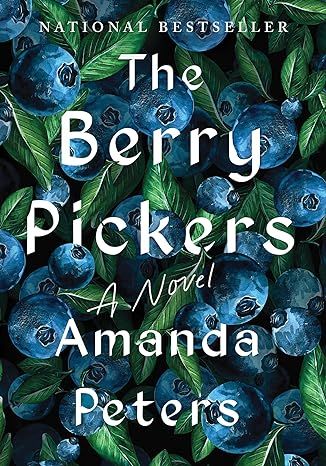
The Berry Pickers: A Novel
4.5
-
14,209
$14.99

Elon Musk
4.7
-
15,272
$16.99
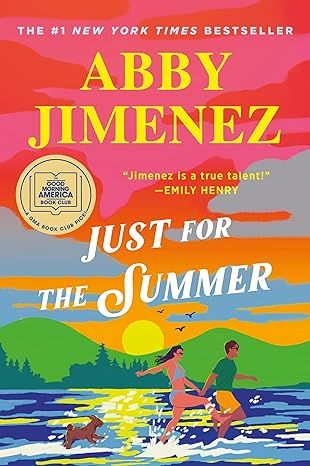
Just for the Summer
4.6
-
19,524
$11.99
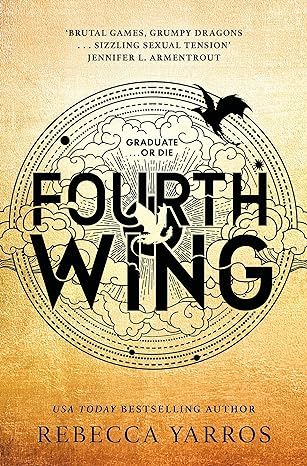
Fourth Wing (International Edition)
4.8
-
206,495
$7.95
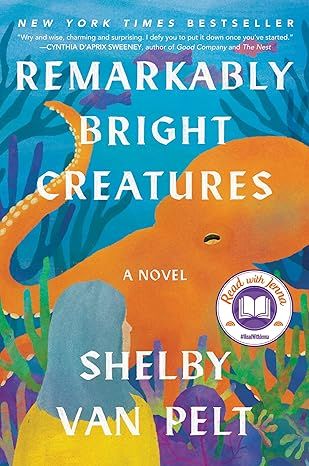
Remarkably Bright Creatures: A Read with Jenna Pick
4.6
-
65,556
$15.80
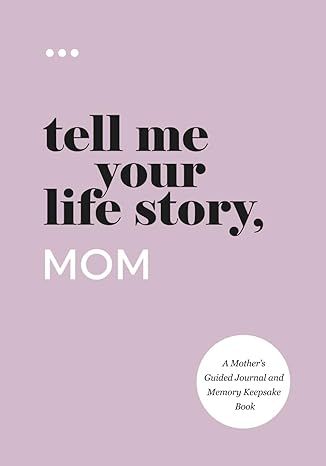
Tell Me Your Life Story, Mom: A Mother’s Guided Journal and Memory Keepsake Book (Tell Me Your Life Story® Series Books)
4.7
-
5,107
$11.24
